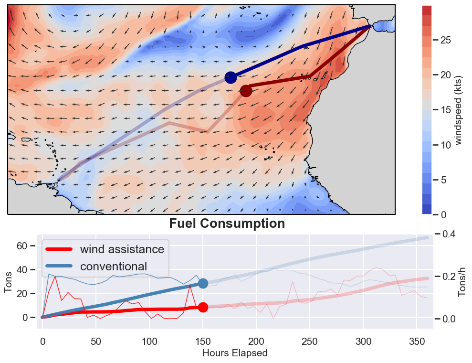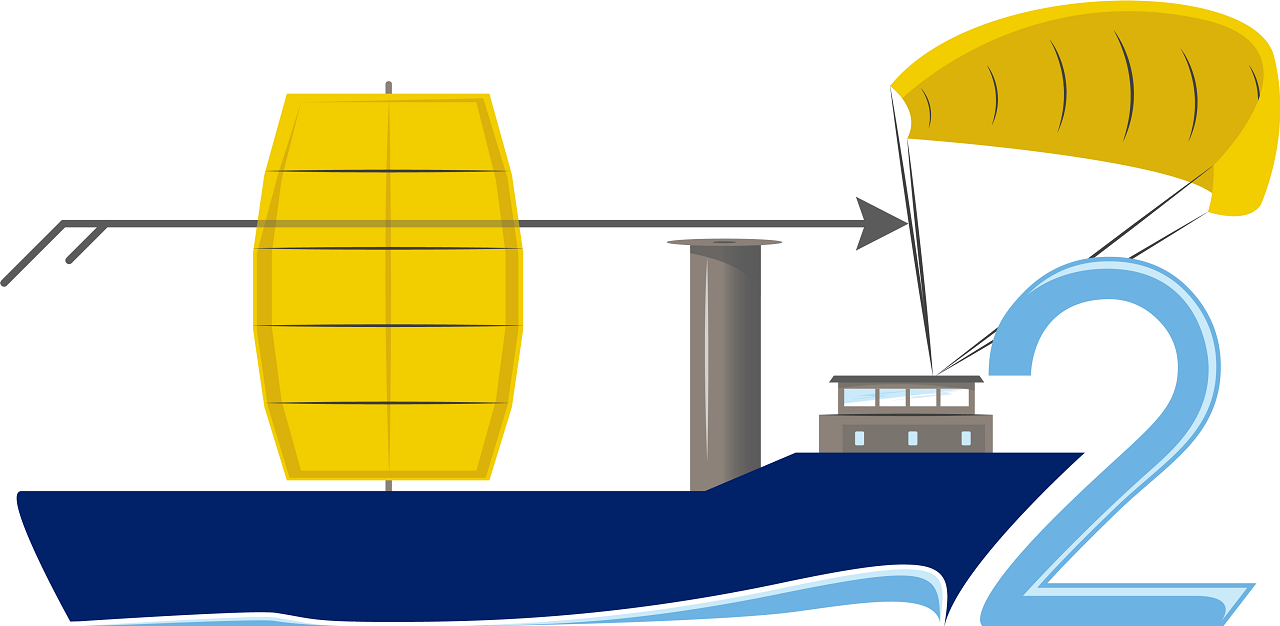MARIN and ABS have kicked off the WiSP2 Joint Industry Project to help facilitate the broad uptake of wind propulsion as an important tool to decarbonise shipping. The aim is to prove the level of fuel savings ship owners can expect, enabling them to make informed investment decisions.
WiSP2 will focus on making evaluations within EEDI (Energy Efficiency Design Index) and EEXI (Energy Efficiency Existing Ship Index), but also from real operational conditions. The upcoming Carbon Intensity Indicator (CII) requirements will also be taken into account. At the same time, compliance to rules and regulations is addressed, specifically on manoeuvring.
Also read: Wind assisted ship propulsion puts the sail back into sailing
‘This Wind assisted Ship Propulsion (WiSP) JIP picks up where the successful phase I project left off with a wider scope and fed by additional insights gained from our earlier phase of analysis,’ states Patrick Hooijmans, Team leader Transport & Shipping, the project lead from MARIN.
Jan Otto de Kat, Director Global Sustainability Center in Copenhagen and co-initiator from ABS, adds: ‘These new findings from WiSP2 will be condensed in updated recommended methods for performance prediction and reported as submissions to MEPC and potentially other committees in IMO.’
Transparent performance prediction
The scope of the project over the next two years will include the following:
- Improve methods for transparent performance prediction, extending the considered wind propulsors and propulsion line types compared to the previous WiSP project.
- Apply the new methods in cases, including a validation case.
- Further review of the regulatory perspective, recommend improvements and clarifications, and provide examples to establish compliance.
- Development of a basic performance prediction tool, to be used by participants.
- Proposal for (in-service) speed trials with wind-assist technologies.
- Assess the influence of manoeuvring compliance and course keeping.

‘We are looking forward to being involved and following the progress of this project,’ comments Gavin Allwright, Secretary General of the International Windship Association (IWSA). ‘A project that will culminate in a set of recommendations and a software tool to prepare exploratory performance predictions for wind propulsion systems is another important step forward for the sector.’
MARIN and ABS
WiSP2 was started by MARIN, in cooperation with American Bureau of Shipping (ABS) and together with a large number of participants, to investigate ways to overcome barriers to wind propulsion uptake. The project is open for additional participants. A reduced entry fee is available for additional organisations joining before August 1st 2021.
Also read: Boomsma orders VentiFoil wind-assisted propulsion with Flatracks








